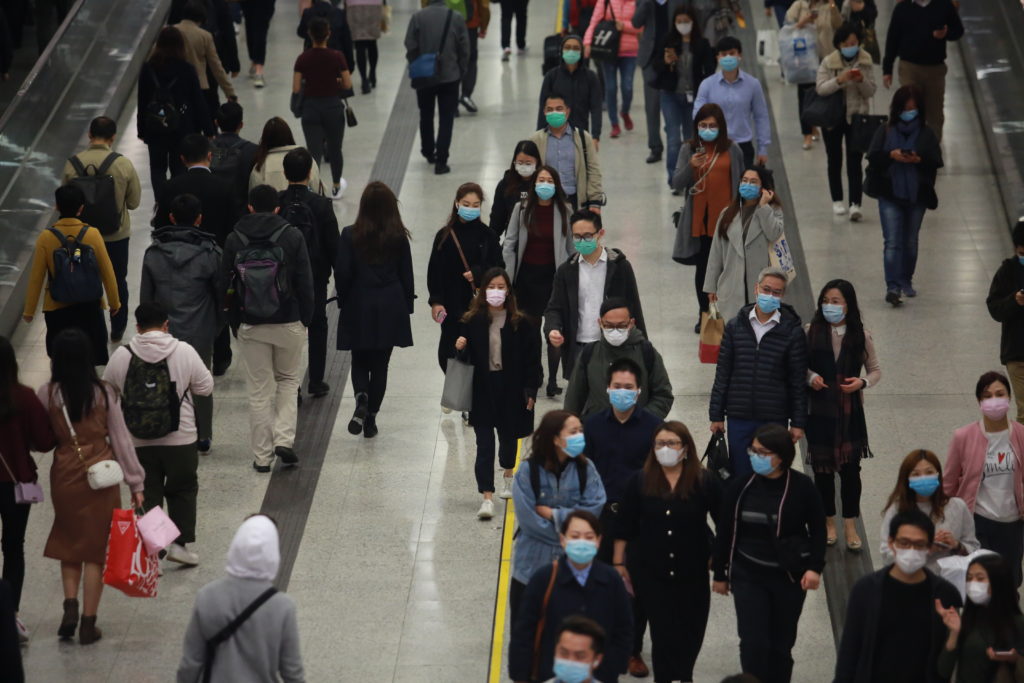Quick Hits
Daily brief research updates from the cognitive sciences

This is a fascinating study that shows that wearing masks changes behaviour in subtle but important ways. There were reports at the start of the pandemic that mask wearing increased social distancing most likely because there is a physical reminder of hygiene.
This study in China focused on how wearing masks influences so-called deviant behaviour. That’s not as bad as it sounds, it just means going against norms and rules such as running red lights, violating parking rules, but also cheating for money.
There is, however, an argument that wearing masks increases anonymity and therefore could increase this deviant behaviour. The researchers from MIT analysed this in 10 separate studies.
First off, they analysed data from traffic cameras to see how motorists, cyclists, and pedestrians with and without masks behaved. They noticed that pedestrians and cyclist who wore masks were less likely to run red lights compared to those who were maskless.
However, this could be down to those who wear masks being more cautious and safety conscious – so further experiments were carried out to see if they could find causality.
One of these was focused on parking spaces for bicycles – something that does not affect safety. They found that those wearing masks were more likely to follow the rules and park in the formally assigned spaces.
Another experiment was also conducted with participants randomly assigned to mask-wearing and non-mask-wearing groups and played games for small amounts of money – with an ability to cheat to win. Those wearing masks cheated less.
This was a large-scale study with 10 experiments with about 68’000 observations, so the results are pretty clear that wearing masks increases following rules and norms to a small but significant degree.
Obviously, this was only focused on China so this may not generalise to other countries particularly where mask wearing has become a political statement such as in the USA. The researchers note that in China mask-wearing is seen as a moral behaviour.
Nevertheless, fascinating that there is a positive knock-on effect in society – I’d certainly be interested in data from other countries.

Andy Habermacher
Andy is author of leading brains Review, Neuroleadership, and multiple other books. He has been intensively involved in writing and research into neuroleadership and is considered one of Europe’s leading experts. He is also a well-known public speaker, speaking on the brain and human behaviour.
Andy is also a masters athlete (middle distance running) and competes regularly at international competitions (and holds a few national records in his age category).
References
Jackson G. Lu, Lesley Luyang Song, Yuhuang Zheng, Laura Changlan Wang.
Masks as a moral symbol: Masks reduce wearers’ deviant behavior in China during COVID-19.
Proceedings of the National Academy of Sciences, 2022; 119 (41)
DOI: 10.1073/pnas.2211144119
More Quick Hits
Learning at double-speed?
Quick HitsDaily brief research updates from the cognitive sciences ouldn’t it be great if we could learn things double speed? Well, maybe we can. At least according to a study out of the University of California. During the pandemic many...
The “drunken monkey” hypothesis – proven
This had to be a story I covered – monkeys and alcohol sounds too good to pass up. But this is also linked to the “drunken monkey” hypothesis: that humans developed their love for alcohol in earlier primitive times accidentally, and then intentionally, eating fruit...
The Newly Discovered Bias That Makes Us Think We Are More Diverse Than We Are
A few weeks ago I reported on some newly discovered ways we are biased namely that we consider generic terms such as “people” as equivalent to “men” rather than men and women. This was specifically focused on gender bias but this latest piece recently published shows...
Self-awareness of autism leads to better quality of life
Autism has become a well-known diagnosis in recent years. Though some people seem to be against this sort of labelling, and the general increase in different label of mental conditions, a study out of the University of Portsmouth shows why this is actually a good...
Optimal sleep improves your brain, mental, and physical health - and it’s not as much as you think
I’ve reported multiple times on sleep and how it affects just about everything form cognitive performance, to brain plasticity, to physical performance, to mental health, and to metabolism. The question...
No change for a century – children’s backgrounds still predict the same educational outcomes
Educational opportunities have changed dramatically for children over the last century – schools have changed, and college and university admissions have grown. Or so we might think at least. But according to a study out of the University of York, that is not the...






